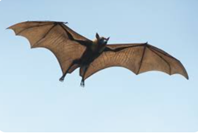BEND, Ore. — Deschutes County Public Health is urging residents to take extra precautions after a bat caught by a cat in Bend tested positive for rabies last week. Officials emphasize the importance of protecting both families and pets against the potentially fatal disease.
Rabies Risks and Transmission
Rabies is a viral disease that affects the central nervous system of mammals, including humans. It can be transmitted through the bite or scratch of an infected animal. Once symptoms appear, rabies is almost always fatal.
While post-exposure vaccines are highly effective, health officials stress that prevention is the best defense. Avoiding contact with potentially infected animals and ensuring pets are properly vaccinated are critical safeguards.
Also Read
Public Health Precautions
Deschutes County Public Health shared several key recommendations:
-
Avoid physical contact with bats — whether they appear healthy, sick, alive, or dead. Children and pets should be kept away from any bats.
-
Do not handle stray animals or wildlife. Feeding or attempting to rescue wild animals can increase the risk of exposure.
-
Vaccinate pets. Oregon law requires rabies vaccinations for all cats and dogs. Vaccinations protect animals from exposure and help prevent transmission to humans.
Rabies Vaccination Schedule
To comply with state law and ensure protection, veterinarians recommend:
-
First vaccination: between 3–6 months of age
-
First booster: one year later
-
Ongoing boosters: every three years
Officials warn that if an unvaccinated pet is suspected of rabies exposure, it must be euthanized or placed under a strict four-month quarantine.
Bats in Oregon’s Ecosystem
Though not all bats carry rabies, they are the most commonly reported rabid animal in the United States. Bats also play an important ecological role, including pollination and insect control.
Health authorities caution residents to be especially alert if they encounter unusual bat behavior. Signs of concern include bats flying during the day, being found indoors, or sitting on the ground unable to fly. In these cases, residents should move children and pets to safety and contact the Oregon Department of Fish and Wildlife (ODFW) at (541) 388-6363, or call a licensed Wildlife Control Operator.
What to Do in Case of Exposure
If a person or pet comes into direct contact with a bat—or is bitten or scratched by any animal—health officials say to act immediately.
-
Report incidents to Deschutes County Animal Control at (541) 693-6911.
-
Contact Deschutes County Environmental Health at (541) 317-3114.
Prompt reporting ensures that post-exposure vaccination and medical evaluation can be provided as quickly as possible.
Staying Informed
County officials emphasized that rabies, though rare, poses a serious risk whenever exposure occurs. Preventive measures, timely reporting, and vaccination remain the strongest tools against the disease.
For additional information about rabies, residents are encouraged to consult resources from the Oregon Health Authority and the Centers for Disease Control and Prevention (CDC).












